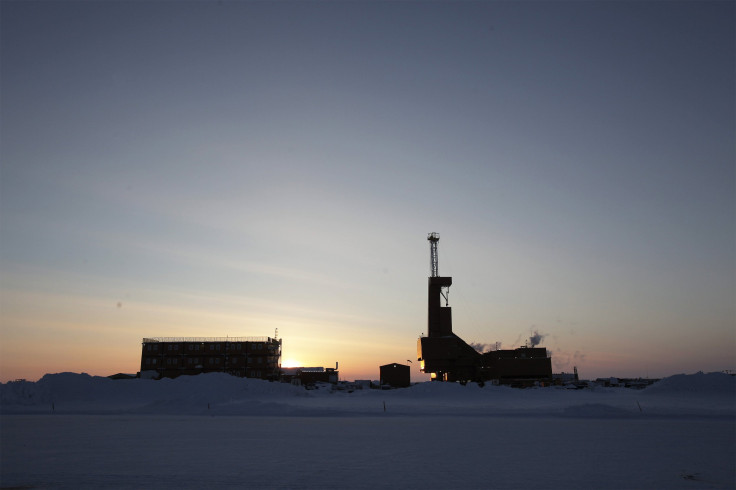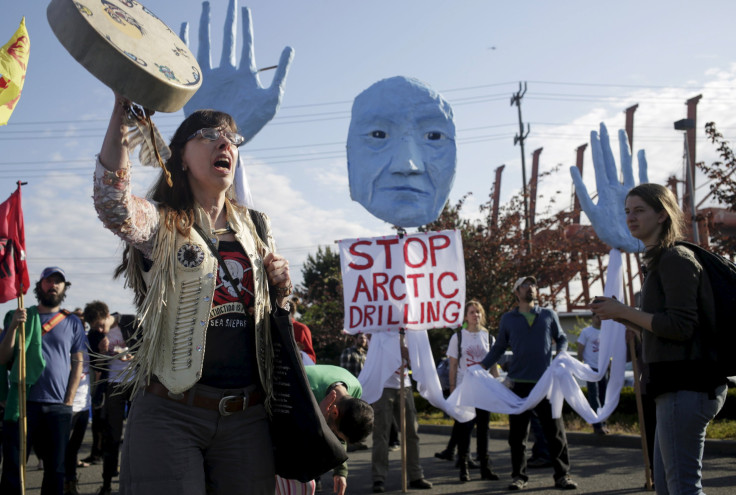Oil Reserves Found 2016: Alaska Offshore Drilling Yields Massive Find For Texas Company

Update 3/10/17: This story was updated to include information about an oil discovery in Alaska’s North Slope.
An energy company exploring Alaska’s North Slope region announced Thursday it had discovered the largest onshore oil reserve in 30 years. Spanish energy company Repsol and its partner Armstrong Energy said the find could hold up to 1.2 billion barrels of light oil.
The well was discovered in the North Slope region near the village of Nuiqsut. Production could begin in 2021, according to a press release.
Read: Largest Oil Discovery In 30 Years Made In Alaska's North Slope
Another discovery in Alaska in October was made by a different company, Caelus Energy Alaska, when it found an immense oil well off the northern coast. The company had drilled two wells in the region earlier in the year before finding the reserve.
The company estimated it could provide 200,000 barrels of light oil to the Trans-Alaska Pipeline System. The pipeline currently operates at only a third of its capacity, with a 39 percent decrease over the past ten years.
We are excited to announce a significant light oil discovery on our Smith Bay state leases on Alaska's #NorthSlope: https://t.co/tpuPvcgfUf pic.twitter.com/oiKGXZlJM7
— Caelus Energy Alaska (@CaelusEnergyAK) October 4, 2016
Light oil is thinner and less dense than heavy crude oil, making it easier to pump and extract. This addition of the newly discovered light oil could reduce the overall viscosity of oil in the Trans-Alaska Pipeline System, allowing it to live longer. Light oil makes up about 30 percent of the world's petroleum reserves.
The discovery has "the size and scale to play a meaningful role in sustaining the Alaskan oil business over the next three or four decades," Caelus COO Jim Musselman said in a statement on the company's website. Oil production in Alaska has been on the decline, although oil and gas still account for an estimated 90 percent of the state's revenue. Musselman credits state tax credit programs for enabling the discovery.
"With an oil pipeline that is three-quarters empty, this is good news for the state of Alaska," Gov. Bill Walker said in a press release. "I applaud Caelus for this major discovery, and for the company's commitment to do business in our state."
I applaud Caelus for their major discovery, and their commitment to doing business in Alaska. pic.twitter.com/OLpSUksJMc
— Bill Walker (@BillWalkerAk) October 4, 2016
Offshore oil drilling is a controversial issue tied up in ongoing legislation. In March, President Barack Obama restricted drilling in the Atlantic Ocean off the east coast. The Arctic was left available for harvest, much to the chagrin of many environmentalists.
In September of 2015, Shell abandoned drilling off the north shore of Alaska after finding it was "not sufficient to warrant further exploration." Shell "ceased further exploration activity in offshore Alaska for the foreseeable future," the company said in a press release.

Alaska has made $157 billion from oil production since 1959. The waters surrounding the state are estimated to contain more than 30 percent of the world's recoverable offshore resources.
© Copyright IBTimes 2024. All rights reserved.





















